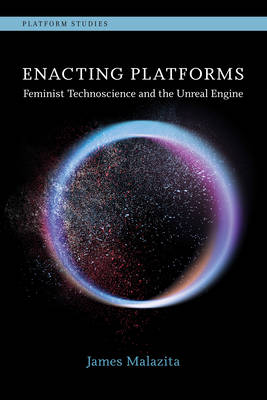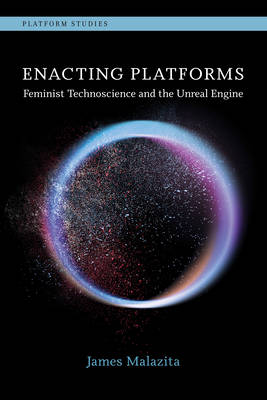
Vous voulez être sûr que vos cadeaux seront sous le sapin de Noël à temps? Nos magasins vous accueillent à bras ouverts. La plupart de nos magasins sont ouverts également les dimanches, vous pouvez vérifier les heures d'ouvertures sur notre site.
- Retrait gratuit dans votre magasin Club
- 7.000.000 titres dans notre catalogue
- Payer en toute sécurité
- Toujours un magasin près de chez vous
Vous voulez être sûr que vos cadeaux seront sous le sapin de Noël à temps? Nos magasins vous accueillent à bras ouverts. La plupart de nos magasins sont ouverts également les dimanches, vous pouvez vérifier les heures d'ouvertures sur notre site.
- Retrait gratuit dans votre magasin Club
- 7.000.0000 titres dans notre catalogue
- Payer en toute sécurité
- Toujours un magasin près de chez vous
Description
An analysis of the game engine Unreal through feminist, race, and queer theories of technology and media, as well as a critique of the platform studies framework itself. In this first scholarly book on the Unreal game engine, James Malazita explores one of the major contemporary game development platforms through feminist, race, and queer theories of technology and media, revealing how Unreal produces, and is produced by, broader intersections of power. Enacting Platforms takes a novel critical platform studies approach, raising deeper questions: what are the material and cultural limits of platforms themselves? What is the relationship between the analyst and the platform of study, and how does that relationship in part determine what "counts" as the platform itself? Malazita also offers a forward-looking critique of the platform studies framework itself. The Unreal platform serves as a kind of technical and political archive of the games industry, highlighting how the techniques and concerns of games have shifted and accreted over the past 30 years. Today, Unreal is also used in contexts far beyond games, including in public communication, biomedical research, civil engineering, and military simulation and training. The author's depth of technical analysis, combined with new archival findings, contributes to discussions of topics rarely covered in games studies (such as the politics of graphical rendering algorithms), as well as new readings of previously "closed" case studies (such as the engine's entanglement with the US military and American masculinity in America's Army). Culture, Malazita writes, is not "built into" software but emerges through human practices with code.
Spécifications
Parties prenantes
- Auteur(s) :
- Editeur:
Contenu
- Nombre de pages :
- 244
- Langue:
- Anglais
- Collection :
Caractéristiques
- EAN:
- 9780262548243
- Date de parution :
- 02-07-24
- Format:
- Livre broché
- Format numérique:
- Trade paperback (VS)
- Dimensions :
- 150 mm x 226 mm
- Poids :
- 276 g







